The Cost of Clutter: Do You Know What Clutter is Costing You?

Today’s post is all about the cost of clutter. Not just the financial cost. But some of the other ways the clutter in your home and your life can cost you too.
I shared a previous article all about the ways decluttering can save you money. This week I want to look at the other side of that. Specifically, both the monetary and non-monetary costs of clutter.
Stuff isn’t passive
The stuff you own isn’t passive. It’s actively taking from you all the time. Taking up your space. And also taking from you in other ways as well.
It’s easy to downplay the cost of clutter. Thinking it doesn’t really matter. Or that the clutter in the back of your closet, on your floor or sitting in other places in your home isn’t really bothering anyone or anything. It’s just “stuff”. What’s the harm in having a little clutter??
But in truth, there are costs associated with clutter. Again, not just monetary costs, but other costs as well.
Identifying the different costs of clutter is a great way to motivate you to clear the clutter and reclaim what clutter is taking from you.
Cost-benefit analysis
Everything you choose to own comes at a cost to you in one way or another.
But when the benefits an item brings to your life are greater than the costs of owning it, it adds enough value to your life to justify the costs.
However, when the costs of owning an item are greater than the benefits of owning it, it might not justify the cost of ownership. And those kinds of items are things that might not deserve a place in your home and can be decluttered.
But how do you figure this out? What kinds of costs are associated with owning an item?
That’s what I’ll share today. Some of the costs of clutter to help you decide what’s worth keeping and what isn’t adding enough value to your life to justify the cost of ownership.
The cost of clutter
Here are a few of the costs of clutter in your home and your life.
1. The financial cost of clutter
The direct cost
The first financial cost of clutter is the direct cost of acquiring the item. In order to buy something, you need to earn the money to pay for it. For most of us, that means working to pay for it.
In some cases, it might even mean accruing debt if you choose to buy it with credit. The interest you pay on that debt is another cost of acquiring the item.
And when you work to pay for the things you choose to buy, you’re not only buying them with the money you earn. But also the hours you put in to earn that money.
“We don’t buy things with money. We buy them with hours from our lives.”
~ Joshua Becker
The cost of space
The next financial cost of clutter is the cost of the space it takes up in your home. Whether you own your home or rent, you pay for every square inch of space in your home. Not only do you pay rent or mortgage payments. You also pay utility costs, property taxes, maintenance costs, etc.
And when you are paying for space that is filled with clutter you don’t use, need or even really like, that’s a big cost of clutter! Especially when you have a lot of clutter taking up a lot of space.
One poll showed that 20% of North Americans aren’t able to park in their garage because it’s too full of stuff. Other people have entire rooms in their homes they’re unable to use because they’re full of clutter.
Who wants to willingly pay for space in your home, only to keep it full of clutter you’re not using, don’t need or don’t even like?
Clearing the clutter means you have more space for living in your home, instead of just storing stuff. You might want to use that space for a hobby or activity you enjoy.
Or you might just want more space to rest, relax and recharge in your home. Without clutter constantly vying for your attention or reminding you there’s more to do to take care of your home!
Re-buying lost items
Another cost of clutter is when you have too much to comfortably manage in your home, causing you to lose items or not be able to find them. And maybe needing to re-buy things you just can’t find!
Not only is it frustrating to not be able to find something when you need it. It can also become quite expensive if it happens regularly!
2. The time clutter costs you
Another cost of clutter is the time it takes from you.
Everything you own is something you need to take care of and manage. You have to pick up items, clean them, clean around them, organize them, reorganize them, look for them, put them away, keep track of them, maintain them, repair them, etc.
While the time spent taking care of each individual item might seem insignificant. It definitely adds up when you consider the time you spend managing and taking care of every single thing you own in total.
In fact, one source says getting rid of clutter could eliminate up to 40% of housework in the average household!
Not only that but clutter and disorganization also cost you time. The National Association of Professional Organizers say on average, people spend 1 year of their lives looking for lost items!
Any time spent taking care of your home and the stuff you own means less time for the people, activities and hobbies you love and value most.
Our homes will always require some time and energy from us to stay clean, comfortable and safe places to live. But it’s important to differentiate between what is necessary and what is extra time and energy spent managing clutter.
3. The cost of clutter to your relationships
Another significant cost of clutter is the way clutter impacts your relationships.
Less time and energy for your relationships
First, it’s easy to see how the more time and energy your home and the stuff in it requires from you, the less time and energy you have for your relationships with friends and family.
It could be feeling like you should be getting chores done at home rather than sitting down to talk to or play with your kids.
Or maybe you always feel too busy to call or visit friends and family. Sometimes the busyness you feel is part of the season of life you’re in and can’t always be avoided. But often, some of the busyness could be reduced or eliminated if you didn’t have as much “stuff” to manage and take care of at home.
Even making the choice to buy less frees up time you previously spent shopping or running errands. Of course, you and your family will still need things like groceries on a regular basis, and still need to shop for other things occasionally.
But it’s worth questioning how much of the shopping and errand-running you’re doing is absolutely necessary and how much could be simplified or reduced.
Fueling resentment or frustration
Another important cost to consider is when the stuff you own and the time and energy required to take care of it all is fueling feelings of resentment and frustration between you and your family or people you live with.
This used to be a really big cost of clutter for me. When we had more stuff than felt I could comfortably manage, I felt like I was constantly picking up and cleaning up. Then I’d start feeling resentful towards my husband and kids for making the mess, not helping me clean up, etc.
I felt like I was spending more time than I wanted to picking up and managing “stuff” in our home. And it wasn’t until I decluttered and highly simplified our home that I realized a lot of what was taking up that time was just clutter.
Clearing the clutter not only made it easier to manage our home. It also meant I wasn’t feeling overwhelmed or like I was always picking up and cleaning anymore.
With less stuff, I spend less time managing it all. And in turn, feel less frustration and resentment towards my family because we don’t have more than feels like a comfortable amount to manage.
Resentment and frustration can not only build about the time and energy spent on chores and the division of labour in the home. It can also build in other ways too.
For example, in a relationship, one partner might spend more and buy more “stuff” than the other partner feels is unnecessary and feels is causing clutter in the home.
Give your kids what they can comfortably manage
I find this especially true with kids. When they have too much stuff to manage, cleaning up quickly feels overwhelming for them. Then as parents, it’s easy to get frustrated when the kids aren’t cleaning up or it turns into a big fight.
Instead, reduce the amount of stuff they have to manage (toys, clothes, books, etc.) so cleaning up isn’t so overwhelming for them. And when cleaning up is less overwhelming, there can be less frustration on both your part as a parent and theirs as kids!
4. The cost of clutter to your mental health and well-being
When you have more “stuff”, it adds more to your workload and mental load to take care of and manage it all.
In fact, studies have shown that a cluttered home can cause an increase in cortisol levels (the stress hormone). Which shows up, particularly for women. Meaning clutter can literally translate into increased stress levels!
Clutter, particularly visual clutter you can see, often acts as a visual reminder of all the work not done, and all the tasks you still need to do. Feeling like there’s always more to do, take care of, keep track of, etc. can feel really stressful.
Not only does clutter make it harder for you to rest and relax when there’s always something reminding you of the work still needing to be done. But it can also distract you, steal your focus, and cause mental clutter as well.
Clutter can also make it harder to find things in your home when you need them. Which can be really stressful and frustrating!
If the clutter in your home makes you feel embarrassed or self-conscious when guests come over (especially if they arrive unannounced!), that’s another way clutter is contributing to stress and impacting your overall well-being.
And most importantly, clutter can make you feel unsettled in your home. Or like you’re not in control of your home or the stuff in it. Instead of your home feeling like a retreat from the stress of the world, your home becomes another thing adding to your stress.
Clearing the clutter is a great way to reduce stress levels at home and create a home that feels like a haven where you can truly rest, relax and recharge.
5. The emotional cost of clutter
Beyond the stress clutter can cause in your life, it also has other costs to your emotional well-being.
Clutter can often end up sending a lot of negative messages to you. Sometimes without you even realizing it! Making you feel guilty, not good enough, lazy, lacking in confidence and self-esteem and all kinds of other negative feelings.
For example, seeing a cluttered space in your home might make you feel bad about yourself that you’re not able to keep your house tidy. Rather than seeing it as a “stuff problem”, where you simply have too much to comfortably manage. It can easily make you feel like there’s something wrong with you that you can’t keep up with it all.
Seeing things you spent money on, but now aren’t using or loving, can bring up feelings of guilt about wasting money. Even seeing gifts you don’t use or like can make you feel guilty for not using or liking them!
Clothes in your closet that don’t fit you anymore can make you feel bad about your body or size. Unfinished hobby projects can make you feel guilty for wasting money or not committing to finishing the project. Exercise or sports equipment you don’t use can also make you feel guilty or bad about yourself.
There is enough negativity in the world. You don’t need to add more negativity and beat yourself up more because of clutter in your home! Clear the clutter and the negative messages it’s sending to you with it!
6. The cost of clutter to your focus, attention & productivity
Everything you own is something taking some of your time and attention. The more you own, the more there is vying for your time and attention. This is particularly true for visual clutter you can see.
Your mind is always taking it in and assessing what it is, what it needs from you, what needs to be done with it, etc. That clutter is always pulling at your attention, which can be really distracting!
This distraction can interrupt your focus and ability to stay present with whatever you’re doing. Whether it means focusing on a work task or focusing on a conversation, clutter can distract you, interrupt your focus and even cause you to be less productive!
Not only that, but clutter can also lead to more decision fatigue. Your brain can only make so many decisions before the quality of your decision-making abilities starts to decline. Your brain simply gets tired!
Clutter causes you to make more decisions throughout the day, many of which are unnecessary. Clearing the clutter means you have fewer things in your home to decide about and decide between. Helping reduce decision fatigue and saving your higher-quality decision-making abilities for more important decisions!
7. The cost of clutter to your health
The cost of clutter to your physical health might not always be obvious, but clutter definitely impacts your health.
For example, clutter in your bedroom makes it harder for your brain to turn off and fall asleep. Simply because it’s always taking in the visual stimuli, assessing them, deciding if you need to do anything with them, etc. When your brain can’t turn off, it can impact your ability to fall asleep and your sleep quality.
As discussed earlier, clutter can also increase levels of cortisol (the stress hormone). Prolonged exposure to cortisol can have a variety of health impacts. Affecting your digestion, decision-making, ability to think, sleep, immune system functioning and more.
Another way clutter can impact your physical health is through the air quality in your home. When you have a lot of clutter, it’s harder to remove dust and allergens. And there are more places for dust and allergens to build up and hide. All affect the air quality in your home, which affects your physical health.
The costs of clutter – they’re higher than you think!
I hope today’s post shows you just how high the costs of clutter can be. It’s easy to think the stuff in your home isn’t hurting anything, even if you don’t use, need or love all of it. But as you can see, clutter comes at a cost!
I hope you can use the information in today’s post to continue fueling your motivation to declutter, simplify and create a home that supports you and the life you want to live!
What costs of clutter have you noticed in your life? Leave a comment and let me know.

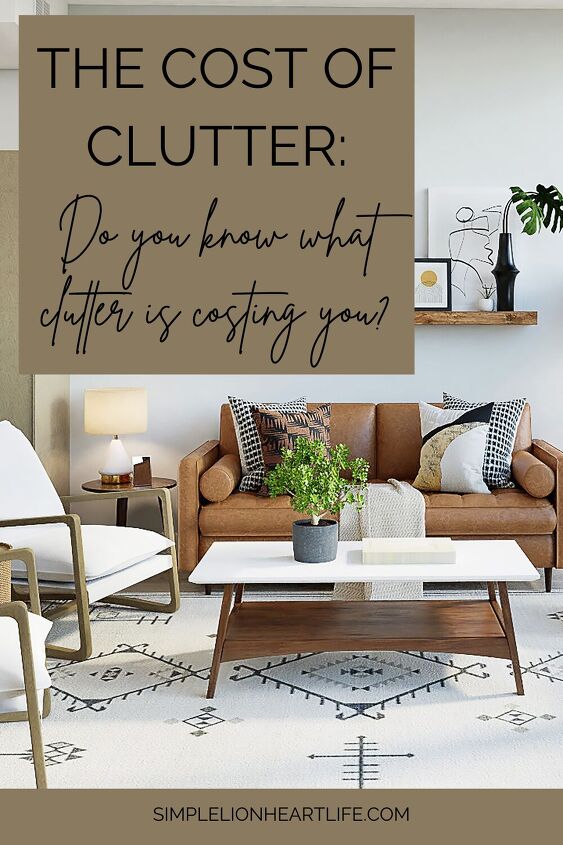



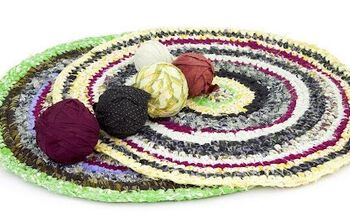


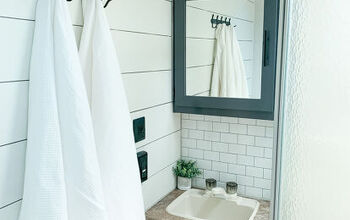
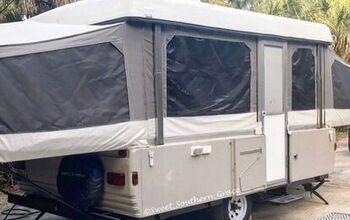
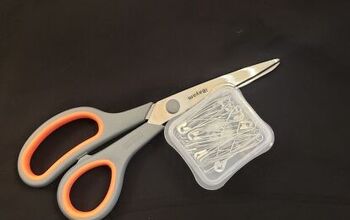

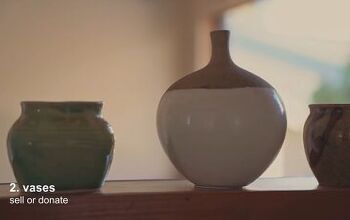
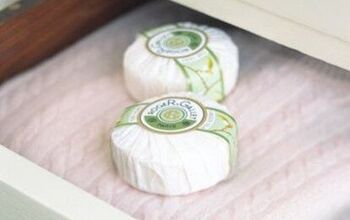


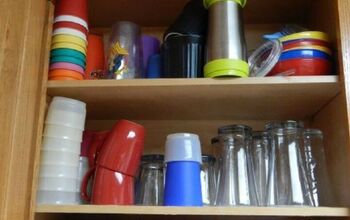



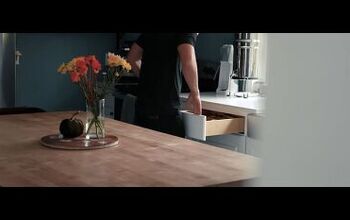
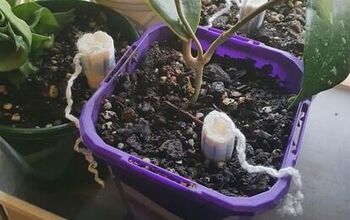
Comments
Join the conversation
After reading this article, I realize how clutter is controlling my life. I am going to make a sincere effort to purge the clutter while I am alive and not waiting for my family to rid of unnecessary items once I am gone.
Here's another example of the emotional control "things" can have on a person. My mother saved a LOT of things that had belonged to her parents and grandparents. She adored these things; I'd say even idolized them because she was that emotionally attached to her family. After she passed away I developed a fear of her disapproval about what I would do with her family things. It was almost paralyzing. Thankfully, some therapy helped cut me loose from the emotional entanglements her parents had placed on her, then she onto me. Getting rid of "things" ("clutter" is too harsh a word for vintage/antique!) can become stalled because of the effects others have had on our emotions!
Here's the rest of the story, if you're interested! I still have a lot of her "things." I've had fun entering them into the state fair antiques exhibit, earning many blue and red ribbons (and money!). Some things I've kept because they're interesting or pretty. Other things I've sold at a flea market and on eBay. My rule of thumb now is, "Have I enjoyed this piece long enough that I'm ready to let someone else enjoy it?" There's a time for keeping and a time for giving away (Ecclesiastes 3:6). Take courage! God will help you sift and sort! It is pure joy to watch how your things can bring joy to others!